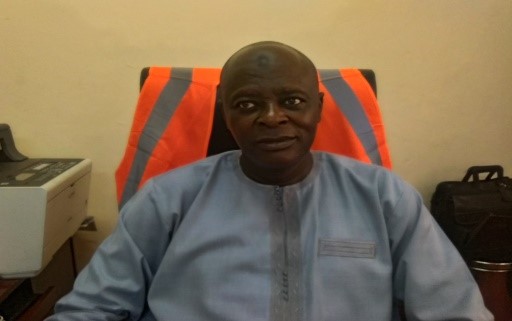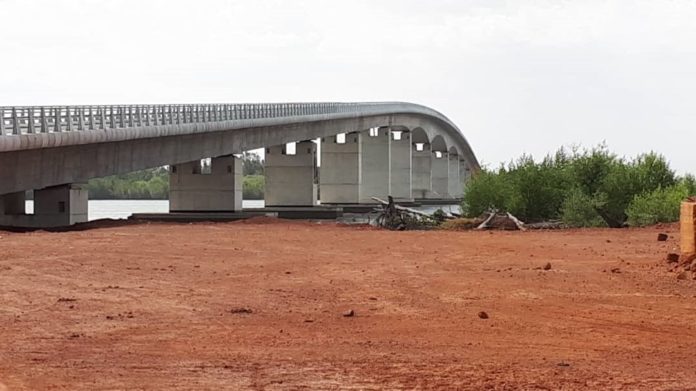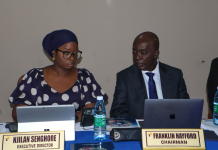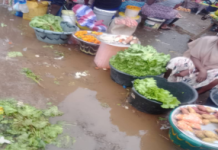By Nelson Manneh
Hall Abdoulie Gai, the Deputy Managing Director of the Gambia Ferry Services said the commissioning of the Senegambia Bridge, poses a challenge to the ferry
services, despite the significant achievements made by the ferries in 2018.

Gai makes these statements on Thursday August 1st 2019 in an interview with this reporter in his office in Banjul. ‘‘2019 poses challenges for the ferry services and the main cause of these challenges is the commissioning of the Senegambia Bridge,’’ he said. Gai said the Bamba-Tenda/Yelli-Tenda ferry crossing point has been in operation for over 80 years; adding they have invested heavily in terms of building the landing bridge, halls, offices and many infrastructure on both sides of the banks for the ferries; but the commissioning of the new bridge, has immensely affected the revenue gains of the ferries. ‘‘When the new bridge commenced operations, the ferries at this crossing point started to lose revenue up to now,’’ he said.
Another challenge he said includes the landing bridges for the ferries at this crossing point. Gai said these bridges were rehabilitated in 2010 by the previous regime. ‘‘These structures were improved but notwithstanding, they still need to be rehabilitated,’’ he said.
On the Banjul/Barra ferry crossing point, Gai said the ferries used to operate from 6:00 am to 8:00 pm. ‘‘When I came back to office in 2017, management decided to improve the operating times of the ferries from 5:00 am in the morning to 11:00 pm in the evening, to make sure that the demand tallies with the supply. During feasts and when the demand is very high, we make sure that the ferries operate 24 hours. Services at the ferries, is just like at the International Airport. The first impression matters and that is why we made sure that our landing points are well organized,’’ he said; adding they also ensured that all revenue generated from the ferries, is deposited at the bank daily, to prevent mismanagement of funds. He said at the end of the financial year in 2017, the ferry services realized a loss of about 10 million dalasi. ‘‘After realizing this huge amount of losses, we embarked on various activities in terms of staff training and redeployment and revisited our tariff. This led to a significant gain in 2018,’’ he said; that the sanitation system in all landing sides of the crossing points has improved because health is a priority to them as an institution. He said in the year 2018, the ferry services recorded huge revenue gains of over 50 million dalasi. He said in 2018, the ferry services was able to shoulder all its bills and they now operate without any foreign expertise.
Mariama Fatty a student at Gambia Senior Secondary School who lives in Barra, said students in uniform are allowed to cross without paying fares; that this is significant because most of them come from humble backgrounds.
‘‘I usually stay for studies from Mondays to Thursdays. But any time I close, the ferry is always available,’’ she said; adding despite this, they still face challenges when crossing especially during the rainy season; that during the rains, the ferries stop operations making it dangerous to cross by boats, and forcing them to be absent from classes; that this affects their lessons.



















